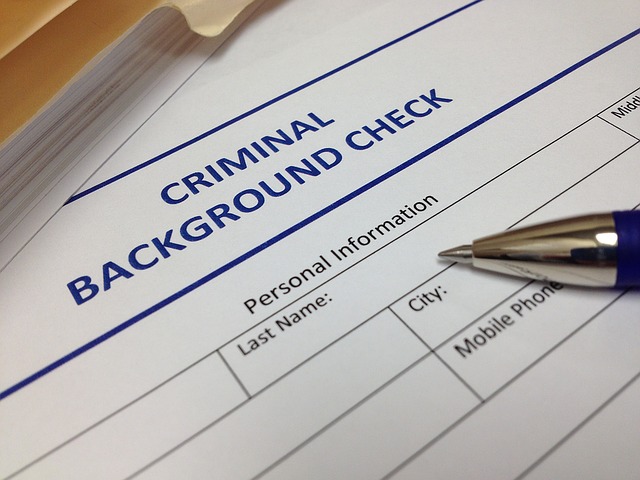
By Kaitlyn Burns, Staff Writer
On February 16, 2016, the Pennsylvania General Assembly followed the lead of at least 18 other states[1] by enacting its first criminal record sealing law.[2] While the law only went into effect a couple of months ago on November 14, 2016 — and it is still early to determine if the law will fulfill its intended purpose — Pennsylvania government officials have high hopes that it will “help Pennsylvanians with minor or dated criminal records have a fighting chance at opportunities for gainful employment.”[3] But what exactly does the new law do for Pennsylvanians with criminal records? The answer is very little.
According to its text, the new criminal record sealing statute allows for those who have second- and third-degree misdemeanor convictions, or convictions for an ungraded offense where the maximum penalty was no more than two years imprisonment, to shield the general public from viewing or obtaining access to information related to these convictions.[4] In other words, it prevents those who typically perform criminal background checks on applicants — prospective employers, education institutions, or landlords — from taking certain criminal convictions into account when determining whether an applicant should be hired, admitted, or granted a lease. Thus, the new statute helps Pennsylvanians with criminal records obtain a better quality of life that they might not necessarily have but-for the criminal record sealing process.[5]
This law, however, is not without its limitations. First, the new statute only allows for a court to seal misdemeanor convictions if the requesting petitioner is free from arrest or prosecution for a crime for 10 years following conviction or release from confinement for the misdemeanor.[6] Thus, the law only provides long-term post-conviction collateral relief, and does not prevent prospective employers, academic institutions, public benefit offices, or landlords from discriminating against criminal record holders until they have already undergone discrimination for 10 years. Second, the law limits which second- or third-degree misdemeanor offenders can get their criminal records sealed. It states that those with convictions of four or more offenses or those convicted of specific felony offenses are automatically disqualified from sealing their misdemeanor offenses.[7] Thus, time and quantity restrictions will most likely greatly restrict the number of Pennsylvanians eligible for criminal record sealing.
Moreover, the new statewide fee schedule statute enacted contemporaneously with the new criminal record sealing statute may have the unintended effect of further limiting the pool of Pennsylvanians eligible to get their records sealed.[8] This fee statute creates a statutory minimum filing fee of $132 per petition for both expungement and criminal record sealing processes.[9] This new minimum fee may have deleterious effects on prospective petitioners because many will have to file multiple petitions to hide prior criminal charges or offenses.
Before this new fee schedule statute took effect, each county had its own filing fee for expungement petitions.[10] Of the 67 counties, only four had expungement filing fees that were over $100 per petition.[11] Prior to this new fee schedule statute, one could assume that filing fees for petitions to seal criminal records would be analogous to expungement filing fees because both processes offer similar relief and are the same level of complexity. However, some counties have instead added the $132.00 fee to their old fee, which makes the price of filing an expungement petition or a criminal record sealing petition more than $200.00 in some counties.[12] With this new law, which drastically increased the filing fee in most counties, it is clear prior offenders lower on the socioeconomic ladder may not be able to afford to seal their criminal records — even if they are eligible for such relief.
So, what do we learn from a quick analysis of Pennsylvania’s new criminal record sealing process? We learn that it is a step in the right direction for Pennsylvania, but that it only helps a particular subset of past offenders in achieving a better quality of life.
Sources
[1] Margaret Love, 50-State Comparison Judicial Expungement, Sealing, and Set-Aside, CCRC (Mar. 2017), http://ccresourcecenter.org/resources-2/restoration-of-rights/50-state-comparisonjudicial-expungement-sealing-and-set-aside/.
[2] Act of Feb. 16, 2016, Pub. L. No. 5, 2016 Pa. Laws.
[3] Press Release, Gov. Tom Wolf, Governor Wolf Reminds Pennsylvanians of Criminal Record Sealing Law (Nov. 28, 2016), https://www.governor.pa.gov/governor-wolf-reminds-pennsylvanians-of-new-criminal-record-sealing-law/.
[4] See 18 Pa. Cons. Stat. § 9122.1(a) (2016).
[5] See, e.g., Legal Remedies and Limitations: Employment of People with Criminal Records in Pennsylvania, Community Legal Serv. (May 2016), https://clsphila.ord/learn-about-issues/legalremediesand-limitations-employment-people-criminal-records-pennsylvania; David Thatcher, The Rise of Criminal Background Screening in Rental Housing, 33 L. & Soc. Inquiries 1, 5-8 (2008); The Use of Criminal History Records in College Admissions Reconsidered, Ctr. For Community Alternatives (Nov. 29, 2010), https://csgjusticecenter.org/nrrc/publications/the-use-of-criminalhistoryrecords-in-college-admissions-reconsidered-2/; Nan Felyer, Impact of Criminal Record on Public Benefits in Pennsylvania, Community Legal Serv. (Mar. 2016), https://clsphila.org/sites/defaut/files/issues/criminal%20background%C20chart%C20March%202016_).pdf.
[6] 18 Pa. Cons. Stat. § 9122.1(a).
[7] See 18 Pa. Cons. Stat. § 9122.1(b).
[8] See 42 Pa. Cons. Stat. § 1725.7 (2016).
[9] Id.
[10] See Pennsylvania Expungement Cost Per County, Phila. Lawyers for Soc. Equity, http://plsephilly.org/get-help/expungement/ (last visited Apr. 3, 2017).
[11] Id.
[12] See, e.g., Service Fees, Allegheny Cnty., http://www.alleghenycounty.us/court-records/criminal/cost-and-fee-schedule.aspx (last visited Apr. 7, 2017) (noting that expungement petition filing fees now cost $232.00, a drastic increase from the previous $100.00 filing fee petition).